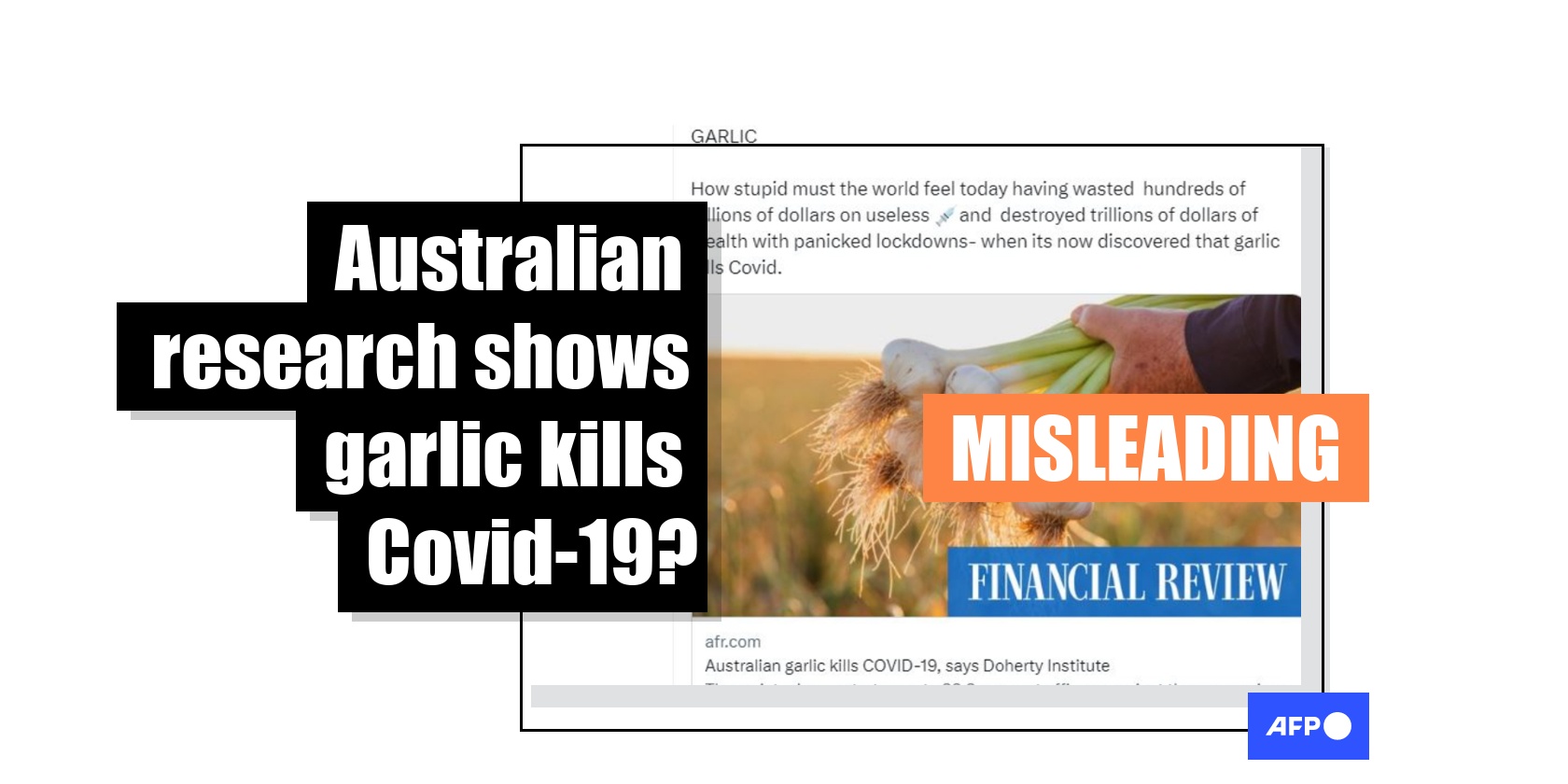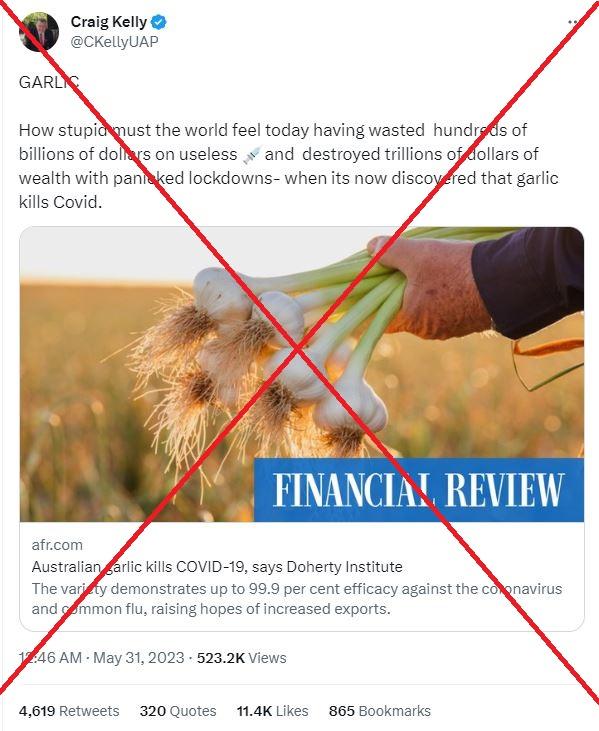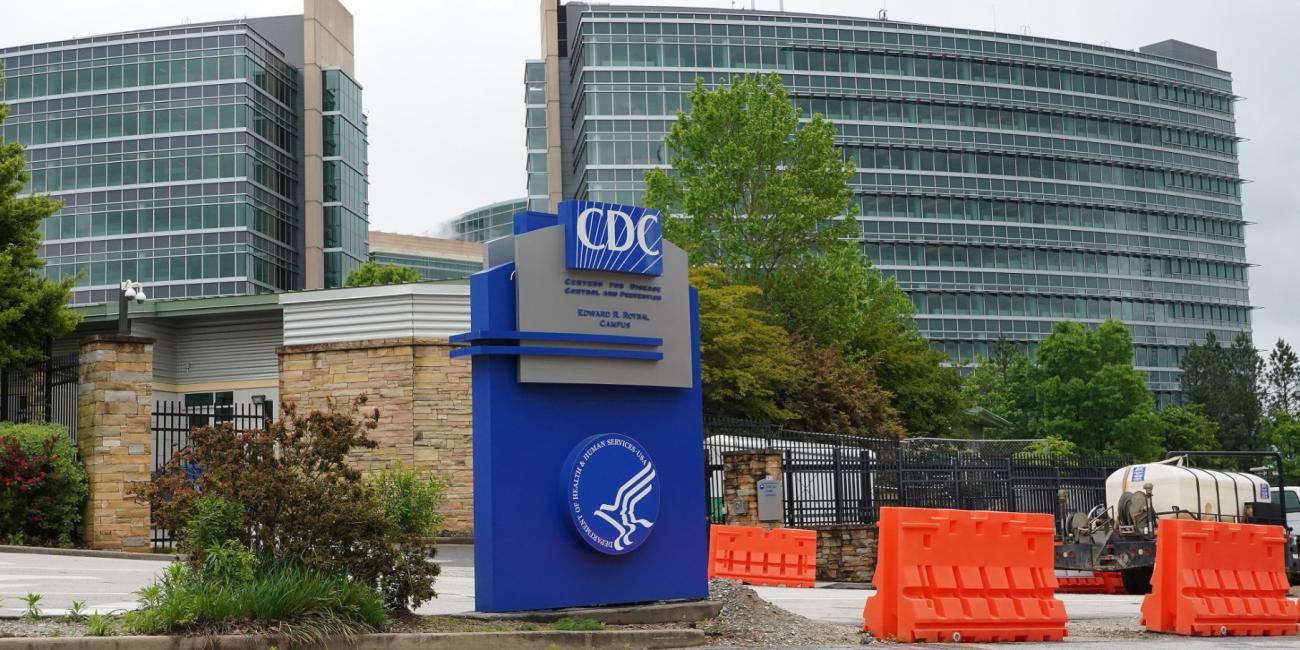
Lab study misrepresented in posts that claim garlic works better than Covid vaccines
- This article is more than two years old.
- Published on June 30, 2023 at 05:43
- 2 min read
- By Kate TAN, AFP Australia
"How stupid must the world feel today having wasted hundreds of billions of dollars on useless (vaccine emoji) and destroyed trillions of dollars of wealth with panicked lockdowns when it's now discovered that garlic kills Covid," Craig Kelly, a known vaccine sceptic and former member of parliament, tweeted on May 31.
Kelly was reportedly removed from Facebook in 2021 for repeatedly peddling pandemic misinformation.
His tweet, which has been retweeted more than 4,000 times, shared an article headlined, "Australian garlic kills COVID-19, says Doherty Institute", referring to an Australia-based medical research centre.

Similar posts circulated on Instagram and Telegram, including a group with more than 20,000 subscribers which said: "They injected half the world, leading to untold deaths and injuries, and could've just used garlic."
Misinformation around Covid vaccine safety surged during the pandemic, despite health authorities highlighting billions of people around the world have been safely jabbed against the disease.
Laboratory study
Following news reports about the research, the Doherty Institute issued a statement to clarify the study did not find that garlic could kill Covid-19 in humans (archived link).
It said the research involved "in-vitro testing" -- meaning outside a living organism -- on garlic extracts and the results "do not show medical treatment application".
"Stringent clinical trials would need to be conducted to determine if these findings translate from test tubes to humans."
The institute also said it frequently evaluates the antiviral properties of certain products under paid contracts with commercial entities, and that the garlic study was commissioned by Australian Garlic Producers.
Many news outlets that reported on the findings of the study, including the Australian Broadcasting Corporation, Nine News and Seven News, did not mention that the research was in-vitro.
The Australian Financial Review article that Craig Kelly shared in his tweet updated its report to cite an epidemiologist clarifying the results of the study.
"We won't know if this product helps with COVID-19 or influenza until we run clinical trials in real people, rather than petri dishes in a lab," the article quotes Gideon Meyerowitz-Katz from the University of Wollongong as saying.
Furthermore, health experts said there was no evidence to support claims that garlic can kill Covid-19.
Duane Mellor, a senior teaching fellow at Britain's Aston Medical School, said there was "little clinical trial evidence to suggest that either eating garlic or taking a garlic supplement has any clinical effects on either Covid or influenza in humans."
But Covid-19 vaccines "have been shown to reduce risk of infection during clinical trials," he told AFP on June 19.
Sylvie Briand, the World Health Organization's director of global infectious hazard preparedness, said in October 2020 while there were health benefits to eating garlic, there was no evidence it could cure Covid-19 (archived link).
Australia's medical regulator, the Therapeutic Goods Administration recommends Covid-19 vaccines as "the most effective way to reduce deaths and severe illness from infection" (archived link).
Health agencies across the world -- for example in the United States, the European Union and the United Kingdom -- have shared a similar message citing real-world data gathered from their respective inoculation campaigns (archived links here, here and here).
Copyright © AFP 2017-2026. Any commercial use of this content requires a subscription. Click here to find out more.
Is there content that you would like AFP to fact-check? Get in touch.
Contact us




